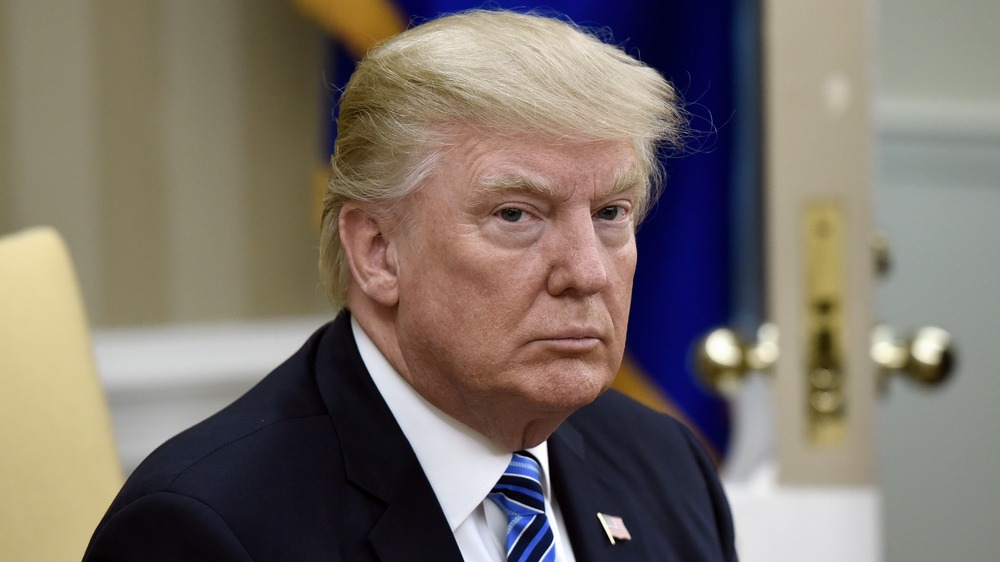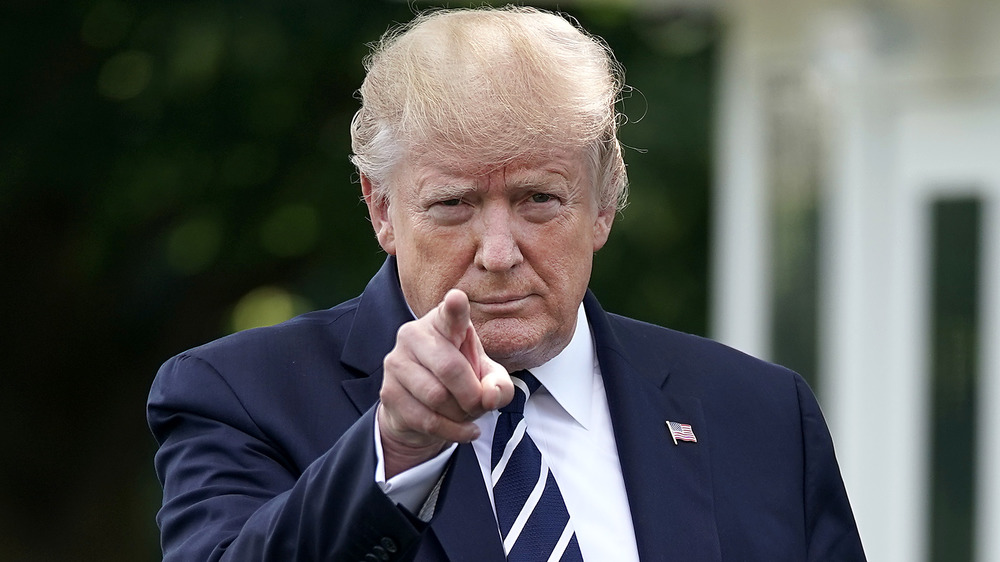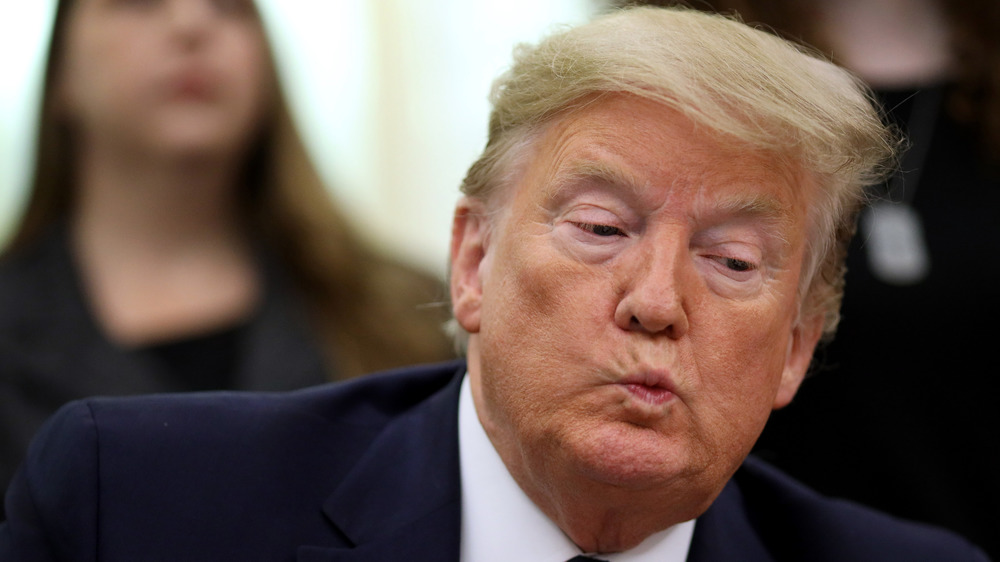What Happens If Trump Pardons Himself?
Donald Trump's time at the White House is nearing its end as Joe Biden and his new administration prepare to take over on Jan. 20, 2020. The sitting-duck president, who falsely claimed the election had been stolen from him due to widespread fraud, conceded on Jan. 7, one day after thousands of his supporters stormed the U.S. Capitol to interrupt lawmakers in the midst of confirming Biden's victory.
"Serving as your president has been the honor of my lifetime," Trump said in a video message. "And to all of my wonderful supporters, I know you are disappointed, but I also want you to know that our incredible journey is only just beginning." He went on to declare that Congress has certified the election results and that his focus is to ensure "a smooth, orderly and seamless transition of power."
But now that Trump has acknowledged his loss and seemingly accepted his fate, what's next for him? Will he face charges? Or as president, will he pardon himself? Keep scrolling to find out what happens if Trump uses his self-pardon powers and whether a president should make this kind of decision.
Trump is aware he has the right to pardon himself
According to CNN, Donald Trump has inquired about his self-pardon powers, with sources saying he's been asking aides and lawyers about the legal and political consequences, though it's "unclear if it has come up" since the incident at the U.S. Capitol. The New York Times also reports the president "has told advisers that he is considering giving himself a pardon" in the final days of his presidency. But can he really do that? Even though no other president has ever pardoned himself, as per NYT, he technically can — and Trump knows this. In June 2018, he tweeted, "As has been stated by numerous legal scholars, I have the absolute right to PARDON myself, but why would I do that when I have done nothing wrong?"
But as NBC notes, a self-pardon still isn't a good idea as it would "place the president of the United States above the law, regardless of what she or he does." It would also "make the president unaccountable for any federal criminal behavior. And it would fundamentally undermine our idea of justice." In other words, a self-pardon could ultimately tarnish Trump's reputation and set a dangerous new precedent for presidents to come.
Trump's self-pardon could backfire on him
It's not yet clear whether Donald Trump will follow through with a pardon for himself, but it could truly backfire on him if he does. In fact, per one Washington Post op-ed, he'd be "walking into a trap" as "self-pardons threaten the rule of law" and "the Justice Department would have to charge him" for that. The publication also reiterated the point that "allowing a self-pardon would set a precedent whereby any future president could commit crimes." This isn't a good look for America's democracy, which was already tested in 2020, and likely not a decision the country's founders thought a president would ever dare to make.
In 2019, CNN legal analyst Elie Honig discussed what would happen if Trump decides to take a chance on a self-pardon anyway. It would "take a series of events to knock it down," Honig said. "A prosecutor first would have to indict Trump, notwithstanding the self-pardon. Then the issue would be litigated in the courts, likely up to the Supreme Court. Given the weight of the constitutional and historical authority (including the Justice Department opinion and the stated intent of the Framers), a self-pardon likely would not stand."
Jack Goldsmith, a Harvard law professor and former Justice Department official, also told The New York Times, "Only a court can invalidate a self-pardon, and it can only do so if the Biden administration brings a case against Trump. A Trump self-pardon would thus make it more likely the Biden team prosecutes Trump for crimes committed in office."



